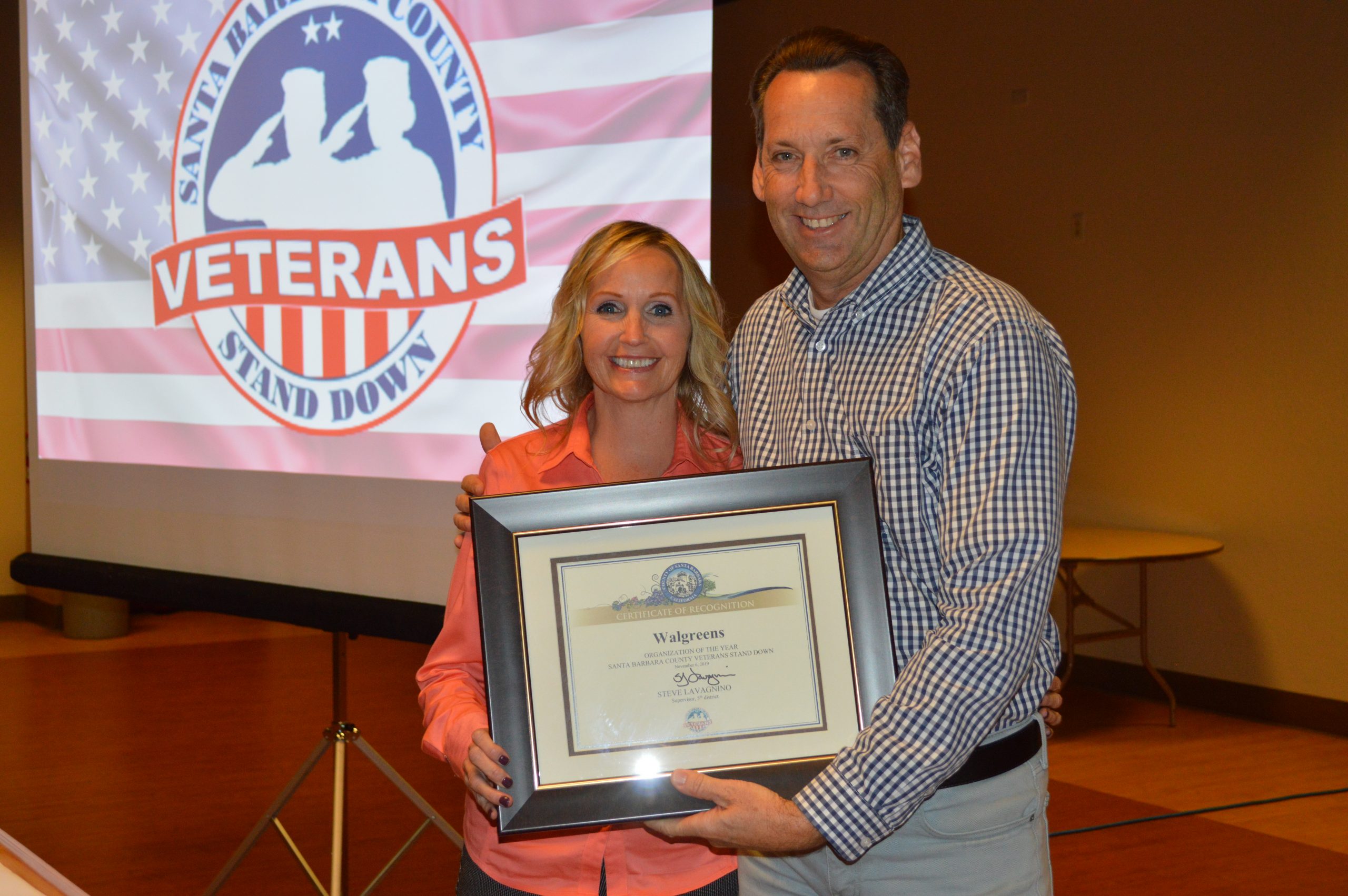By Brooke Holland
Noozhawk Staff Writer
A growing number of people are facing mental health challenges related to the COVID-19 pandemic, according to two prominent Santa Barbara County-based organizations.
It has been estimated that up to one-third of the community is experiencing symptoms of anxiety and/or depression since the pandemic began earlier this year, according to representatives from the Mental Wellness Center in Santa Barbara. It represents a huge increase compared with those affected by mental health struggles in the pre-pandemic days, organization officials said.
“Right now, so many more of us, if not all of us, are dealing with some sort of mental health struggle,” said Amanda Conroy, the Mental Wellness Center’s development and marketing director. “Now, more than ever, we need to normalize mental health.”
Conroy added that reducing stigma will allow people to access the support they need.
People’s mental health and well-being have been challenged since the beginning of the coronavirus crisis, Mental Wellness Center CEO Annmarie Cameron said in a statement to Noozhawk, adding that “some are faring better than others.”
Those with a pre-existing vulnerability to mental health or substance use disorders are experiencing an increase in challenges to their well-being, according to Cameron.
Loneliness, isolation, fear and economic despair also are far more prevalent as a result of the COVID-19 pandemic, Cameron said.
“And, with COVID-19 cases still growing, and the uncertain future of the pandemic, many are stressed, making it more difficult for people to recover emotionally,” Cameron said. “What’s also been hard during this time is that in order to maintain public health measures, which ensure public safety, we’ve had to limit and/or remove social connection and in-person interaction, which has been difficult for many since social connection to our community helps to reduce stress and anxiety.”
While these times have been challenging, Cameron said, the community is resilient.
“We will get through this together,” she said.
All Mental Wellness Center services and programs have transitioned to a new way of connecting with people, and the community-based nonprofit organization continues offering support and education, Cameron said.
“Most of our programs are experiencing an increase in demand, especially our virtual support groups,” she said. “Our youth education programs have never been more necessary, and we are grateful for our collaborative community partners that we work with to carry out this important work.”
The COVID-19 situation offered some silver lining outcomes, including the slowing down of regular routines, increased time with families and opportunity to safely check-in with neighbors, Cameron said.
Many people have taken time to hone a new skill, self-care routines or cooking during the coronavirus pandemic, she added.
“Perhaps the most profound outcome has been the willingness of individuals to contemplate the needs and experiences of others and then, in many cases, jump into action to help others,” Cameron said. “Kindness and compassion know no bounds, even during a pandemic.”
The “unprecedented time calls for us to be compassionate, creative and curious,” she said.
The nonprofit CALM (Child Abuse Listening Mediation) specializes in the prevention and treatment of childhood trauma.
“We see that the pandemic is a trauma, so everybody is experiencing trauma based on the pandemic,” said Alana Walczak, president and CEO of CALM.
People are grappling with school closures and lockdowns. There are the financial- and health-related stressors, plus coronavirus shelter-in-place orders, families juggling work duties from home and children with remote school, and other traumas that come with the COVID-19 pandemic.
It has turned the world upside down, Walczak said.
“Now, on top of those layers of trauma, there’s this more global, more pervasive level of trauma everyone is experiencing,” Walczak said, noting that CALM’s primary clients are children and families who have experienced childhood trauma.
The COVID-19 pandemic intensified mental health needs, Walczak said. It prompted elevated rates of anxiety and increased rates of depression “that are pervasive, and particularly in our client group we are seeing that,” she said.
She said the COVID-19 crisis also has increased the rate of suicide attempts both locally and regionally.
“We anticipate all of these things — anxiety, depression and suicide attempts — are going to increase in the coming months,” Walczak said.
CALM has provided uninterrupted services throughout the COVID-19 pandemic and pivoted to providing telehealth through a HIPAA-compliant methods.
Some people have grown fatigued with digital and Zoom offerings, and the requests for in-person services are going up, Walczak said.
“I think that’s happening because kids are doing school all electronically,” Walczak said. “Children and families are needing an in-person anchor.”
CALM’s three offices across Santa Barbara County are open, and in-person services are available for families with intensified needs.
The demand for CALM’s services has increased “tremendously,” Walczak said. Since mid-March — when coronavirus shelter-in-place orders were implemented — CALM’s weekly client numbers and service numbers have steadily gone up.
“Our client numbers have grown by 60 percent,” Walczak said.
With summer ending and children returning to school, the “client numbers are going up even further,” Walczak said.
There has been a big rise in the demand for services at CALM. Recently, it had 13 requests for service at its Santa Barbara office in a single day.
“That is tremendously high for us to have 13 service requests in one day,” Walczak said.
A survey conducted by the Centers for Disease Control and Prevention found that “elevated levels of adverse mental health conditions, substance use and suicidal ideation were reported by adults in the United States in June,” according to the online survey of 5,412 adults administered by Qualtrics.
Forty percent of U.S. adults reported struggling with substance use or mental health during late June, according to the CDC findings.
“Mental health conditions are disproportionately affecting specific populations, especially young adults, Hispanic persons, black persons, essential workers, unpaid caregivers for adults, and those receiving treatment for preexisting psychiatric conditions,” according to the report.
In the CDC survey, more than 40 percent of respondents reported at least one adverse mental or behavioral health condition related to the COVID-19 pandemic.
The survey results were published in August.
Resources for Mental Health
Mental Health America, a national community-based nonprofit organization dedicated to addressing the needs of those with mental illness, offers free and anonymous screening to help identify symptoms of a mental health disorder. Click here for more information about Mental Health America’s online screening.
“Taking a mental health screening is one of the quickest and easiest ways to determine whether you are experiencing symptoms of a mental health condition,” Mental Wellness Center officials said. “Mental health conditions, such as depression or anxiety, are real, common and treatable, and recovery is possible.”
Santa Barbara County’s Social Services Department has online COVID-19 information with resources for mental and behavioral health, community-based organizations, employment, utility assistance, and legal and tenant aid.
The county Behavioral Wellness 24/7 access line is available by calling 888-868-1649.
The Community Wellness Team, led by the county Department of Behavioral Wellness and co-chaired by the Institute for Collective Trauma and Growth, is a collaboration of local agencies working together to support health and wellness. Go to sbccwt.org for more information about the Community Wellness Team.
“If you or someone you know is struggling or in crisis, you are not alone,” Cameron said, adding that the Mental Wellness Center is proud to be in collaboration with the CWT. “The CWT will come to you virtually. There are many resources available to support your mental health that can be accessed remotely during this time.”
The Mental Wellness Center family advocate is available to individuals and families in need of mental health support and resources. The family advocate is available at 805-884-8440 Ext. 3206.
CALM offers a list of resources and videos on its YouTube channel to help adults and children during the COVID-19 crisis. Go to calm4kids.org/covid-19-resources for more information.
The National Suicide Prevention Lifeline is 800-273-8255.
The National Alliance on Mental Illness Santa Barbara County has several programs and services available to the public. More information is available on namisantabarbara.org.
Compassion and connection are in great demand, and “we are fortunate to live in a community that is caring, kind and supportive,” Cameron said. “Check-in with yourself. Check-in with others. Your mental health matters.”
Noozhawk staff writer Brooke Holland can be reached at bholland@noozhawk.com.








